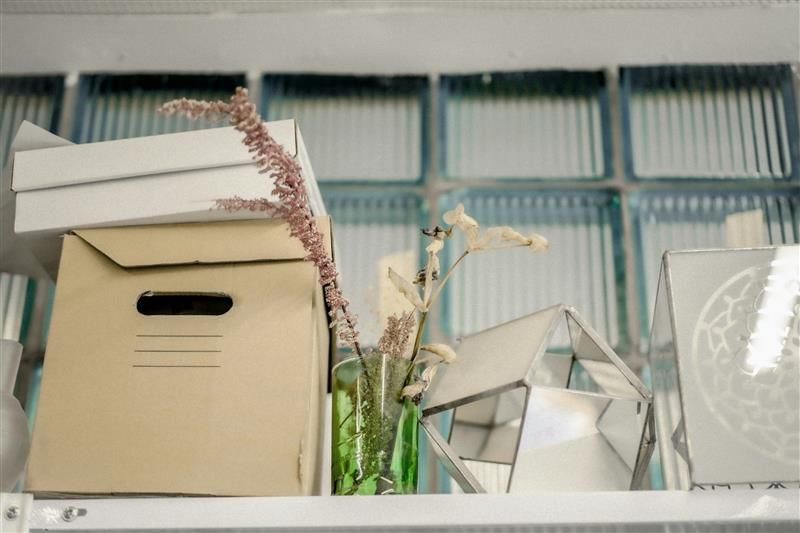
HOW MUCH PAPER GETS WASTED IN THE UK EACH YEAR?
In the UK, we use about 12.5 million tons of paper each year. The trees needed to produce this amount would cover about 21,000 square km – roughly the size of Wales. Comprising 20% of all waste in the UK, the amount of paper we throw away is substantial. If we recycled just 10% more paper each year, we’d save approximately 5 million trees. Given the scale of the issue in the UK it’s worth asking – who are the main offenders, and how can they reduce their paper waste? Let’s take a look.
OFFICES
Abandoned sheets in the photocopier, printed emails, and notebook scraps. Offices have long been known to be serial paper wasters. The average UK office worker uses approximately 10,000 sheets a year, and 75% of this ends up in the waste paper bin. Although sometimes it’s necessary to use paper – for example with legal and official documents – a lot of the time it’s not. A more considered use of paper in the office would do wonders to help reduce the UK’s overall paper wastage.
How to reduce paper in the office
- Use cloud-based applications – It’s easier than ever to securely share information with colleagues and clients using the internet. Cloud-based applications provide an instant way to transfer information and often facilitate collaboration. Consider Google Docs for working on documents as a team, DropBox to share files, or Evernote to take notes during a meeting. Transferring common office functions like these to cloud-based applications will end up saving you reams of wasted paper.
- Be print aware – You can keep track of how much you’re printing by using print audit software and setting departmental printing budgets. Train staff on when to use the printer and perhaps incentivize limited use – a prize for the team that’s printed the least this month?
- Invest in hardware –Consider doubling-up on computer monitors. Having two monitors reduces the need to print documents just for the sake of reference.
SCHOOLS
British schools churn through a lot of paper each year. Whether it’s down to exercise books, report cards, or papier-mache creations, schools account for masses of wasted paper. Each year, the average primary school student produces about 45kg of waste (split for the most part between food and paper waste), and each secondary school student is responsible for about 22kg. Even without considering the mounds of paper involved in school administration, this is a significant amount of rubbish. While a lot of tips for reducing office paper waste can be applied to schools, there are also some more specific actions that you can take.
How to reduce school paper waste
- Paperless resources – Teachers can take advantage of resources that don’t involve paper. Integrating videos, music, or interactive games into a lesson makes it more engaging and avoids creating unnecessary waste.
- Email communications – Rather than sending out paper newsletters and reports, schools can simply share any information they want with parents and students by email. Not only does it reduce paper use, but they can actually track engagement with whoever they’re communicating with.
- Fewer exercise and textbooks – We fully appreciate that not every school will have the funds to fully utilise tech in the classroom, but where possible, consider substituting exercise and textbooks with laptops and tablets. The tech provides a wealth of teaching opportunities whilst removing the need to throw out stacks of note-filled books every year.
HOSPITALS
Another area that contributes significantly to the UK’s paper waste is healthcare. The administrative burdens placed on health professionals in the NHS, for example, are often in the headlines. GPs want to spend more time diagnosing and treating patients, and less sifting through door-stop wedges of folders to find records. Added to this are paper prescriptions and a dizzying array of information leaflets, many of which are never actually read. The result of this flood of paper is not just a reduction in the efficiency of our health service, but an increase in costs – the NHS estimates that each trust spends on average between £500,000 - £1,000,000 a year on storing physical documents. To tackle this problem, in 2005 it launched the Paperless 2020 program – an initiative aimed at reducing the use of paper in the healthcare system through better use of technology.
How to reduce hospital paper waste
- Digital medical records – With medical records stored on a secure server, health professionals can access and update across different hospitals and departments – leading to a faster, more efficient service.
- Digital prescriptions – Rather than distributing prescriptions in a paper slip, hospitals, and health centres would benefit from the use of digital prescriptions, sent via email or text. Whilst reducing paper waste, it could decrease the chances of dangerous prescription errors.
- Cloud-based administration – Various routine hospital tasks can be transferred to a cloud-based application. Ward inspections, for example, could benefit from the use of apps such as Perfect Ward – removing the need to fill out time-consuming paperwork.
HOW TO DISPOSE OF CONFIDENTIAL DOCUMENTS
Despite efforts to minimise paper waste, it’s almost impossible to completely eliminate the need for physical documents. This is especially true for documents that contain sensitive, confidential information – certificates, legal communications, and financial statements, for example. In order to safely dispose of these, the best option is to use the services of a licensed paper shredding company.At Flexible Storage, we offer a professional shredding service via our partner company. Working in full compliance with GDPR, we destroy sensitive documents securely and issue you with a certificate of destruction to prove it. 100% of the paperwork we dispose of is recycled – ideal for companies that want to ensure airtight data protection whilst remaining environmentally-conscious. We can also supply confidential waste disposal bins to ensure all sensitive paperwork is securely stored before disposal. These lockable consoles are perfect for any environment, from schools to hospitals to any corporate office. We’ll collect them on an agreed regular basis or whenever it’s almost full –just let us know and we’ll be there. As with our shredding service, all documents are recycled at UK paper mills with zero percent of our paper waste sent to landfill. For every tonne of paper waste recycled, approximately 17 trees are saved. Secure and sustainable paper disposal – what more could you want? Get in touch with our team today for more information about our shredding services and even receive a quote.








